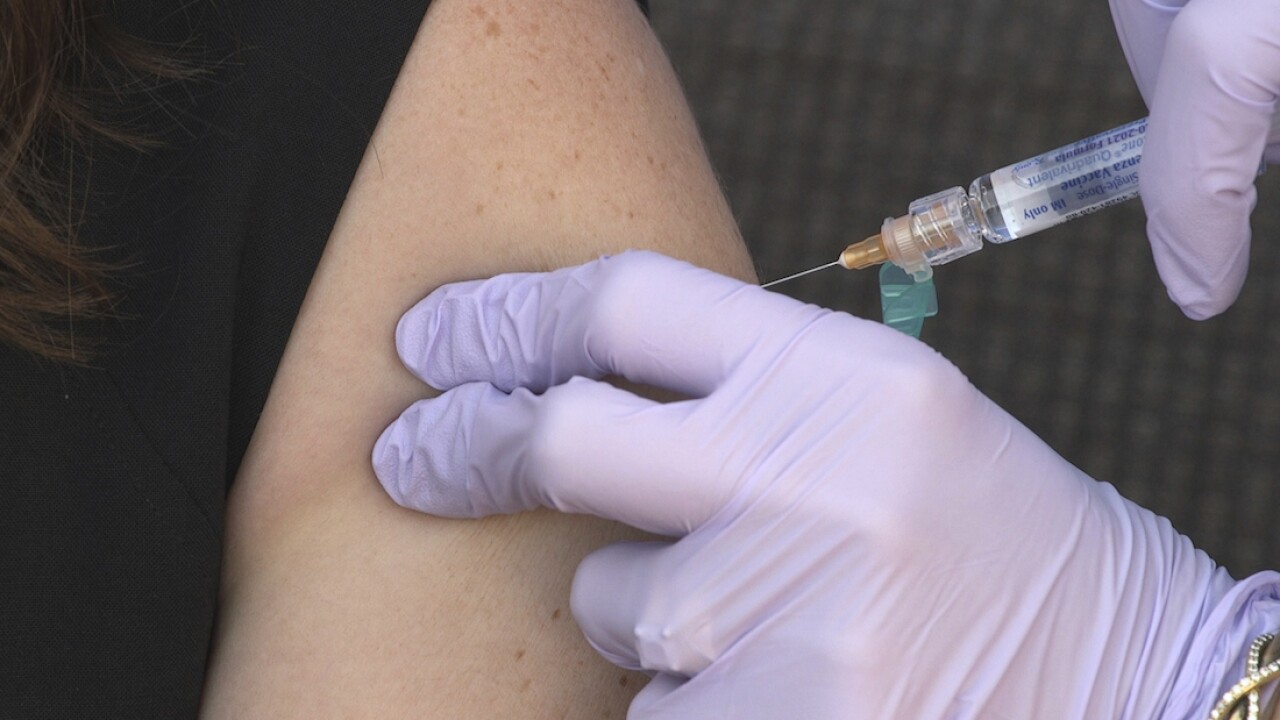(WXYZ) — The coronavirus just keeps on changing. Right now, the omicron variant is spreading wildly across the United States, but we've already seen variants named alpha, beta, gamma, delta, lambda and mu.
All of the changes have made it necessary to get a third COVID-19 vaccine – a booster, but will we need a fourth round of shots?
Israel is already testing it out, and experts say boosters are important, but caution that repeated boosters aren't the way to fight the virus, and may do more harm than good.
550 million people worldwide are fully vaccinated and boosted, but European Union health leaders say repeated boosters with the same vaccine is a bad idea.
"We are rather concerned about a strategy that entangles repeated vaccination within a short term," Dr. Marco Cavaleri, the head of the European Medicines Agency Office of Biological Health Threats & Vaccine Strategy.
He argued that repeated boosters, say around every four months, could actually hurt our immune response and should be avoided.
"We should be careful in not overloading the immune system with repeated immunization," he said.
Dr. Bethany Moore, the chair of Microbiology and Immunology at the University of Michigan, says she hears that concern from the public. She says there are protocols that can lead to lowering the immune response. It's done intentionally with allergy shots. Small doses are delivered in specific intervals, but that's not what would be done if a fourth shot is ever needed.
"There's very little chance that with the regimens we're using right now, with boosters and the vaccines, that we would ever see a tolerance response," Moore said.
Moore says our immune systems are finely tuned to fight infections now and in the future. She said we only need to be exposed to a potentially harmful virus or bacteria a few times for a strong response.
She also said we won't know for six months to a year if we will need another booster, but if we do, there won't be negative effects, pointing to children who receive multiple vaccine series in the first months of life, including Rotavirus, Diphtheria, tetanus and polio.
"So when we're ramping up immunity in children, a lot of our vaccine series are given rapidly," she said.
Also, in a typical cold and flu season, we are assaulted by viruses and bacteria on surfaces like doorknobs, phones, keyboards, grocery carts and in the air.
"We come in contact with every kind of germ and virus that you possibly can on a day-to-day basis in our immune system response," Terri Adams, the director of the Michigan Department of Health and Human Services' immunization division.
Another potential harm cited as a reason against additional boosters is public fatigue. Moore says she understands that too. A weary public and vaccine-hesitant and those afraid of vaccine side effects. An immune response that would be much worse if you caught a live virus.
Even those EU health leaders concerned about additional boosters say the third shot is a powerful tool against COVID-19, and say a fourth shot of the same vaccine say that is on the table for some groups like the immune-compromised.
What about a variant-specific vaccine? That's not a great strategy longer term for omicron, which already appears to have already peaked in metro Detroit.
That vaccine wouldn't be available for months.
Researchers say the is to anticipate the trajectory of the coronavirus and develop an approach to prevent future variants.
Additional Coronavirus information and resources:
View a global coronavirus tracker with data from Johns Hopkins University.
See complete coverage on our Coronavirus Continuing Coverage page.




